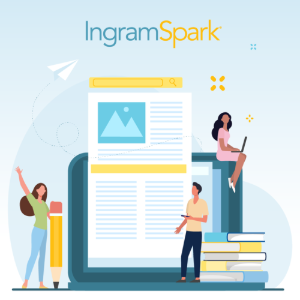Choosing Thema Subject and Qualifier Codes are a powerful way to make your book more discoverable in the Global Market. More super-charged than BISAC Subject Codes, Themas were designed to help your book find both its broad, and very specific, audience around the world.
Unlike localized classification systems, Thema is globally aimed, catering to the diverse needs of the commercial trade, academic, and library markets. Thema allows readers to discover books based on where the subject matter takes place, and when—something not possible in the past.
As of February 2024, Thema's significance has been further underscored with the official obsolescence of the UK BIC standard subject categories.
Thema has multilingual capability. Translated into Arabic, Korean, Japanese, and both Eastern and Western EU languages, Thema ensures that books can be accurately classified and discovered regardless of the language spoken by the reader.
To ensure optimal utilization of Thema codes and maximize global visibility, here are some key dos and don'ts:
DO
- Use both BISAC and Thema for global visibility: While BISAC codes are commonly used in the North American market, utilizing Thema codes for the rest of the world (ROW) market ensures global visibility.
- Use up to three Thema subject codes: Selecting up to three subject codes allows for nuanced classification, providing readers with a clear understanding of the book's primary themes and topics.
- List the primary subject code first: Place the primary subject code first to clearly indicate the focus or theme of the book.
- Use qualifier codes: Qualifier codes are used in conjunction with subject codes and help to refine the subject categories. Examples of qualifier codes:
- Place qualifier codes should be used to convey either the setting for a fiction title or a particular place for a nonfiction title.
- Time period qualifier codes should be used to express a particular time period in which a book is set (fiction) or about (nonfiction).
- Language qualifier codes should be used to convey the language that the book is about, not the language in which the book is written. i.e. For a book written in English about how to learn French, use a French language code.
- Apply Teen, Children's, and Educational codes for Young Adult and Juvenile Titles: For YA/JUV titles, utilize appropriate Thema codes such as Teen, Children's, and Educational categories.
- Use Thema codes for titles with both international and U.S. distribution: Regardless of distribution channels, incorporate Thema codes into metadata to ensure consistent classification and discoverability across international and U.S. markets.
DON'T
- Don’t use one-letter codes. Avoid using single-letter categories as Thema codes, as they lack specificity and may lead to confusion or misclassification.
- Don’t use redundant or overly specific codes: Refrain from including redundant or overly specific codes that do not add significant value to the classification.
- Don’t use incorrect codes: Avoid using incorrect or marginally relevant codes to get your book classified in multiple sections of a store. This scattershot approach can confuse booksellers and customers as well as make the actual subject of the book hard to identify.
- Don’t use Thema Gift Book code (WZG): Avoid using the Thema Gift Book subject code (WZG) for categorizing books. It is not intended for standard book classification purposes.
By adhering to these dos and don'ts of Thema code implementation, publishers can effectively enhance the visibility and discoverability of their titles in global markets. Through strategic selection and application of Thema codes, publishers can ensure that their books are accurately classified, making them more accessible to readers worldwide.
As the publishing landscape continues to evolve, embracing standardized classification systems like Thema is essential for staying ahead of the curve and reaching new audiences across diverse markets.












